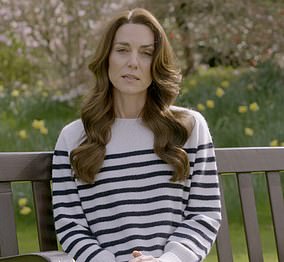How only 10% of all cancers are in adults under 50 but experts warn of an ‘epidemic’ of disease in young adults after Kate Middleton’s shock diagnosis
Only one in 10 cases of cancer are diagnosed under the age of 50, but the number of cases is increasing, data shows.
Responding to Kate Middleton’s shock diagnosis, experts today warned of an ongoing ‘epidemic’ of the disease among young people.
However, they said a combination of early detection of the disease and better treatments results in improved survival rates.
The Princess of Wales, 42, Dapper revealed that doctors had discovered an unspecified form of cancer in tests taken after her abdominal surgery.
In an emotional video message filmed in Windsor, Kate revealed that the news had come as a “huge shock” and that she and William have “done everything we can to process and manage this privately for the sake of our young family.”
According to Cancer Research UK, more than 375,000 cases of cancer are discovered in the UK every year, the equivalent of 1,000 every day.
In a video message released today, Kate said her medical team had advised her to undergo a preventative course of chemotherapy. “This obviously came as a huge shock, and William and I have done everything we can to process and manage this privately for the sake of our young family,” she added.
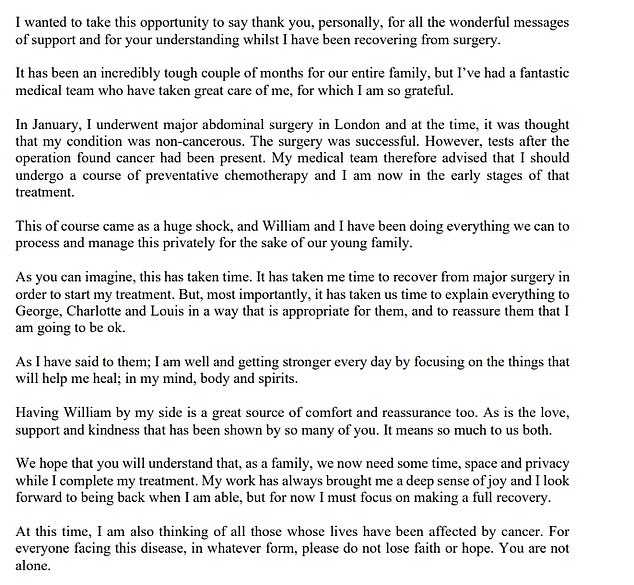
Catherine’s emotional and extraordinary words in her unprecedented video message
UK figures suggest the 25 to 49 age group contributes to around a tenth (9 percent) of new cases, with almost twice as many women as men in some age groups.
More than a third (36 percent) of new cancer cases occur on average in people aged 75 and older.
Adults aged 50 to 75, meanwhile, account for more than half (54 percent) of all new cases.
Cancers of the breast, prostate, lung and colon make up the vast majority of new diagnoses, accounting for about half in total.
Dr. Shivan Sivakumar, an oncologist at the University of Birmingham, said: ‘There is currently an epidemic of young people getting cancer – under 50s.
‘The cause of this is unknown.’
Professor Andrew Beggs, a colorectal surgeon at the University of Birmingham, said: ‘Cancer that develops at a young age is by no means rare.
‘I run a clinic for early-stage cancer in adults and we are seeing more and more people in their 40s with cancer.’
Professor Lawrence Young, an expert in molecular oncology at the University of Warwick, added: ‘Cancer survival is generally higher in younger people.
‘Early diagnosis and better treatments result in better outcomes, with survival rates doubling over the past 50 years.’
Figures show that approximately one in two people will develop a form of cancer during their lifetime.
According to Cancer Research UK, a third of all cases in Britain are preventable.
The Princess of Wales’s cancer was only discovered after she underwent major abdominal surgery at the London Clinic in January.
Kensington Palace has said it will not share details about what type of cancer the princess has, or what stage of cancer it is, and has asked people not to speculate.
In a statement this evening, His Majesty said he is ‘so proud of Catherine for her courage to speak as she did’ and that he remains ‘in the closest contact with his beloved daughter-in-law’.
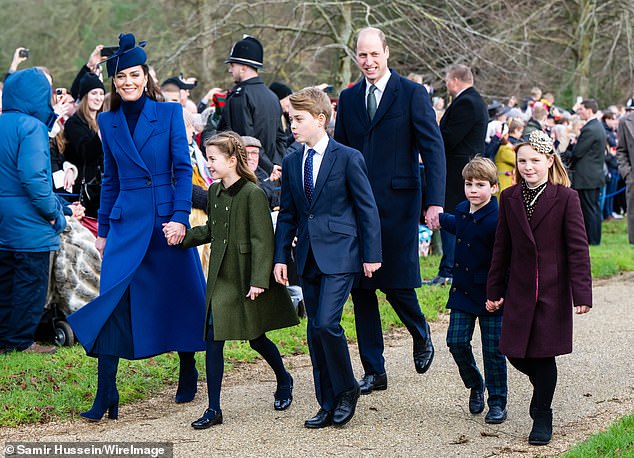
The Princess of Wales said her family (pictured together on December 25) ‘need some time, space and privacy while I complete my treatment’
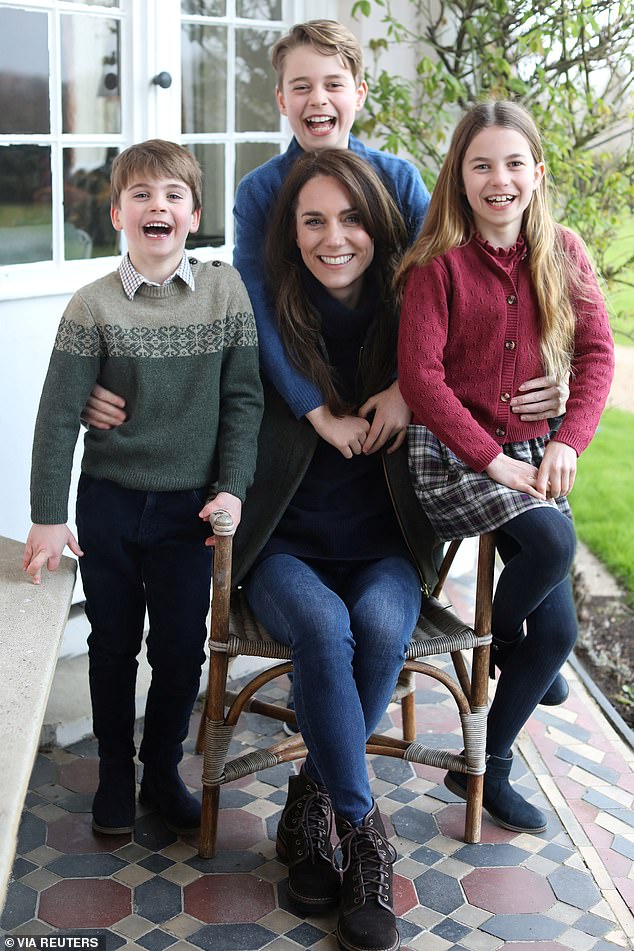
The Princess of Wales with her children in her Mother’s Day portrait, which has now taken on significance given her diagnosis
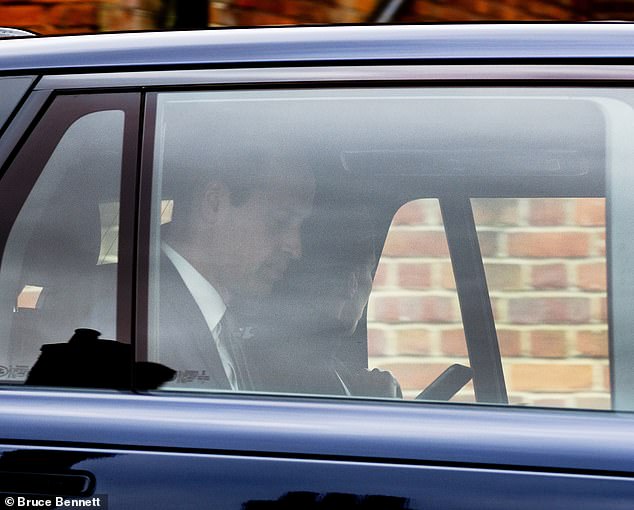
The Prince and Princess of Wales were spotted together last week as William attended The Commonwealth Day Service at Westminster Abbey
The king and queen said they “will continue to offer their love and support to the entire family during this difficult time.”
Despite the toll cancer is taking in Britain, crucial NHS targets for the disease, such as early diagnosis and treatment, continue to be missed in England.
The healthcare system is currently facing a post-Covid backlog of cancer referrals, with the latest NHS data showing that more than 10,000 patients have not started cancer treatment within two months of an urgent referral from their GP.
It means that only six in ten cancer patients (62.3 percent) were seen within the two-month target.
According to NHS guidelines, 85 percent of cancer patients should be seen within this time frame.
But this target has not been achieved nationally since December 2015.
Only 70.9 percent of patients referred urgently for suspected cancer were diagnosed or ruled out within 28 days, compared to 74.2 percent the month before. The goal is 75 percent.

